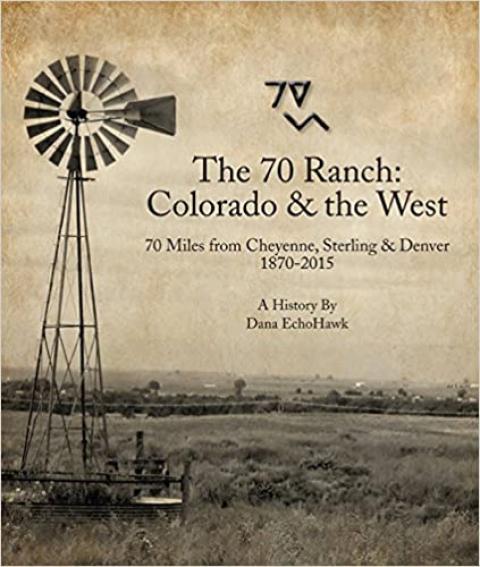KERSEY, Colo. -- They grew up in an era when people wrote thank-you notes so when a group of senior citizens received a donation to their food program and a book about the donor, the nearby 70 Ranch, they did what they have done for decades:
"Thank you very much for your support. We are so glad with your contribution to our community. It's beyond belief and there are no words to say thank you," Carmen Mashahllah wrote. "By the way, I loved your book."
"Thank heaven for special people like you for the generous donation," wrote Adella Andrijeski.
70 Ranch owner Bob Lembke in May donated $5,000 to the seniors food program, which provides lunch on Tuesdays and Thursdays. The seniors used to eat their lunch at the Kersey Community Center but it has been closed since the state’s coronavirus crisis. The town’s recreation director, James Neill, and recreation specialist, Kaylee Guerin, still go to the center those days to pack up the meals and personally deliver them to the seniors’ homes.

"This is the first time I have received the meals. I appreciate it very much," wrote Shirley Prescott, who added she enjoyed the book, too.
The donation has allowed Kersey's Friendly Fork meal program administered by Weld County to provided more than 1,200 free lunches to area seniors, Neill noted.
He also wrote a thank-you note to the 70 Ranch, pointing out that over the years it has donated thousands of dollars to the town of Kersey, the Kersey Day Committee and and Kersey Community Center. The 70 ranch made a recent donation for blinds in the new Kersey center.
"There are not enough words to describe the thanks and appreciation we have for your partnership," Neill said.
When the donation was made, Lembke said, "The 70 Ranch has been a part of the Kersey community for over 100 years, and we wanted to make sure those who are a part of that history are taken care of."
From "The 70 Ranch: Colorado & The West" the book by Dana EchoHawk:
According to local historians and residents, the ranch got its name because it is 70 miles from Denver, 70 miles from Cheyenne and 70 miles from Sterling, the three primary cattle shipping hubs in northern Colorado during the nineteenth century.
But then again, it may have been envisaged for the year 1870 when Major James Edward Williams and James W. Macrum first grazed cattle in the grassy sand hills north of the river and branded them with the number '70.'


